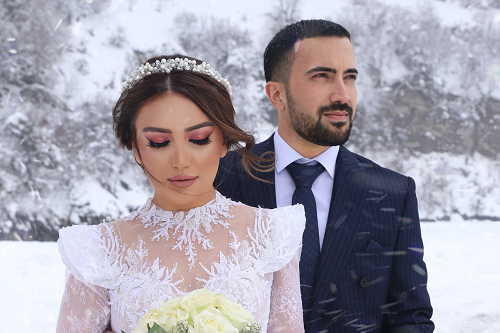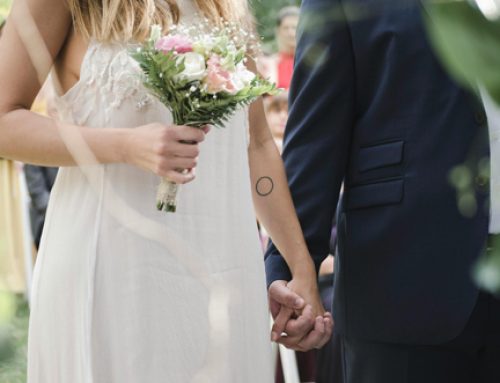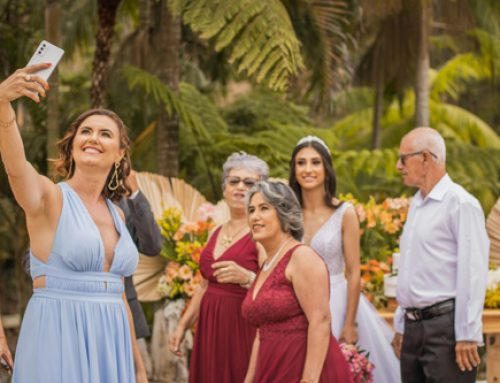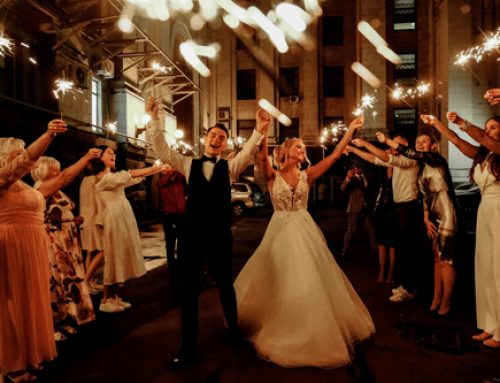12 Common Winter Wedding Mistakes Couples Make (and How to Avoid Them)
November through December is the most unpopular time to get married, so if you’re considering a winter wedding, you’re definitely in the minority. However, just because fewer people are getting married during the winter months doesn’t mean that it’s any less of a special time to tie the knot.
Winter weddings can be incredibly romantic, with the snow falling gently in the background. Not to mention, they often come with a built-in theme.
However, winter nuptials can also be logistically challenging and sometimes even dangerous. From icy weather conditions to slippery surfaces, there are plenty of things that can go wrong. That’s why it’s essential to be more attentive when planning a winter celebration.
So, before you place your beautiful wedding bands on each other’s fingers and take your vows, there are a few potential problems you’ll want to avoid.

1. Expecting Guests To Come Ready for an Outdoor Ceremony
Your winter wedding might be outdoors, but that doesn’t mean your guests will come prepared for the occasion. How disappointing would it be for your guests to arrive at your ceremony only to find that the cold weather is making them miserable?
If you’re having an outdoor celebration, include that information in your invitation so they can dress appropriately. You should also provide guests with blankets and shawls or rent some outdoor heaters to keep them warm. They can still enjoy your winter ceremony without being uncomfortable and cold.
2. Not Sending Out Save-the-Dates
This mistake can happen during any season, but sending out save-the-dates for winter weddings is especially important. Many of your guests might already have holiday plans, so they’ll need as much notice as possible to clear their schedules for your big day.
Make sure to send out your save-the-dates at least eight to 12 months in advance, so your guests have plenty of time to make arrangements. You can also include a schedule of events on your save-the-dates so guests can start planning their trip around your wedding dates.
3. Lacking Winter Emergency Kit
No matter what season you’re getting married in, you should always have an emergency kit. But, this is especially true for winter weddings.
Your emergency kit should include items like a first-aid kit, snacks, water, a phone charger, and extra clothes. It would be ideal to have a de-icer, ice scraper, and jumper cables in case your guests get stranded in the cold.
4. Picking the Wrong Venue
When choosing your wedding venue, you’ll want to be sure it fits the season. If you’re planning on having an outdoor ceremony, ensure the area has an indoor option in case of bad weather. You should also check if the venue has enough space to comfortably accommodate all of your guests.
Additionally, it would be helpful to choose a place that will allow you to set up any special equipment you might need, like an outdoor heater or a snow machine.
5. Not Renting Enough Heat Lamps
If you have an outdoor reception, rent enough heat lamps to keep your guests warm. You should also consider renting some outdoor heaters around the perimeter of your reception space.
This simple mistake can easily be avoided by doing some research in advance. So, make sure to ask your venue about their heating options and whether or not they recommend renting heat lamps.
6. Not Coordinating With Your Vendors
Make sure that you are all on the same page with your vendors. This includes ensuring your photographer knows when to arrive, coordinating with your florist about delivery times, and confirming that your caterer is aware of any dietary restrictions.
This is important in the winter when things can get hectic leading up to the big day. If you do not want to deal with the hassle, you can hire a wedding planner to help with vendor coordination. They will ensure that everything runs smoothly on your big day so you can relax and enjoy your special day.
7. Forgetting About Winter Hazards
One of the hazards of winter weddings is the risk of slips and falls. It would help to check if the walkways are well-lit and free of ice and snow. Also, make sure your guests know about this hazard by putting signs or a note in your wedding program.
Another danger to be aware of is road conditions. If you or your guests are traveling from out of town, check the roads in advance and plan for any delays. You can also provide a list of local hotels if anyone needs to stay overnight.
8. Not Having Enough Lighting
Lighting is important for any wedding, but it’s especially crucial during the winter. The days are shorter, and the nights are longer, so you’ll need to make sure your venue is well-lit. This will help ensure that your guests can see during both the ceremony and reception.
If you’re having an outdoor reception, string lights along the perimeter of your space. You can also use candles to create a warm and inviting atmosphere. Just be sure to have enough light sources so your guests can see where they’re going.
9. Not Having the Right Accessories
Accessories are a crucial part of any wedding. From wraps and shawls to boots and gloves, you’ll want to be certain you have the right accessories to keep you and your guests warm.
Choose a wedding dress that is appropriate for the season. A light and airy dress might not be the best choice for a winter wedding. Instead, opt for a dress with long sleeves or a heavier fabric.
You should also consider your wedding bands. A more durable metal, such as tungsten carbide rings that are scratch free and harder than steel and gold, is perfect for handling any winter activities you and your spouse might want to do.
10. Lack of Transportation
Another thing to consider is transportation. You’ll want to ensure your guests have a way to get to and from the ceremony and reception. Renting a shuttle or bus to help transport your guests would be a great option. This is especially important if your wedding occurs in a remote location.
You should also make sure that your wedding party knows how they’re getting to the ceremony and reception. If you’re providing transportation for them, make sure they have all the details in advance.
11. Not Planning for Bad Weather
Bad weather is always a possibility, especially in the winter. Have a contingency plan if it snows or rains on your big day.
This might include renting a tent over your reception space or having a backup indoor location for the ceremony. You should also let your guests know what to do in case of bad weather by including a note in your wedding invitation or emailing ahead of time.
12. Failing to Account for the Cost
Make sure to account for the cost of things like extra lighting, transportation, and accessories. You can also save money by getting married on a weekday or during an off-peak season. Winter wedding ideas on a budget can be tricky, but with creativity, you can still have the wedding day of your dreams.
If you’re on a tight budget, there are still ways to have a beautiful winter wedding. You can DIY some decorations, choose a less expensive menu, or choose a more affordable wedding dress. Budgeting your day will help ensure that you don’t overspend.
Your winter wedding ideas will make your day special, regardless of the weather. By preparing and accounting for unique challenges, you can avoid these wedding planning mistakes and ensure that your big day is everything you’ve ever dreamed of.




Leave A Comment